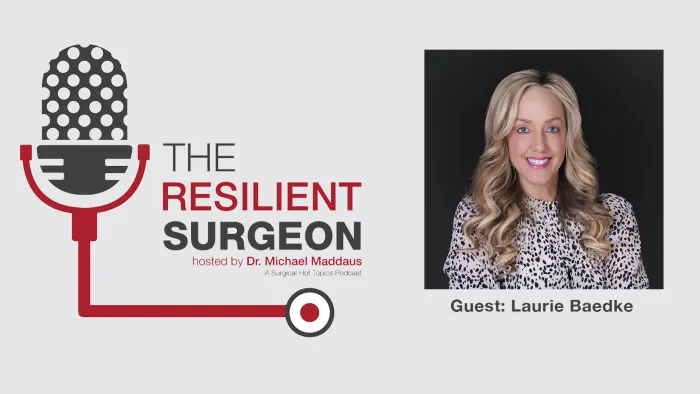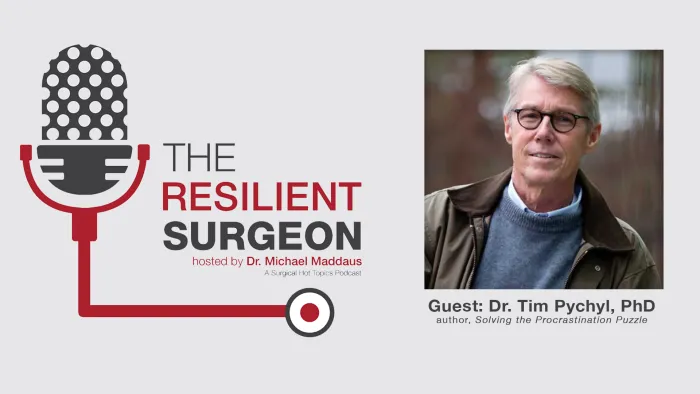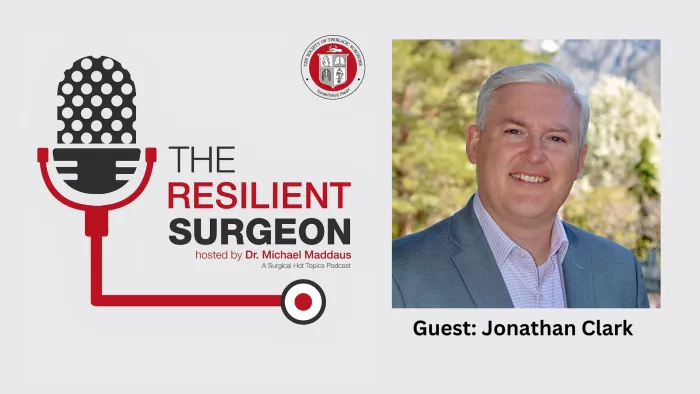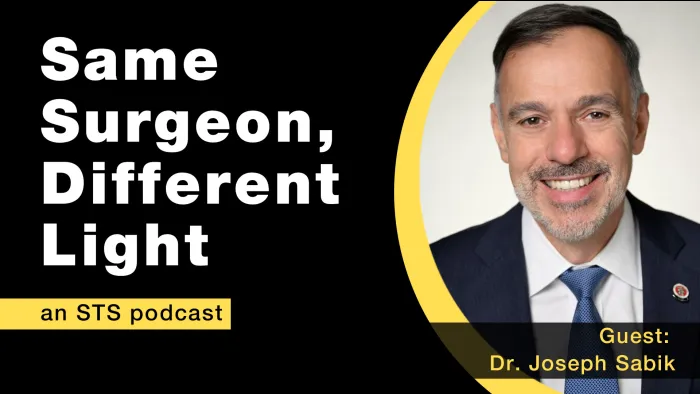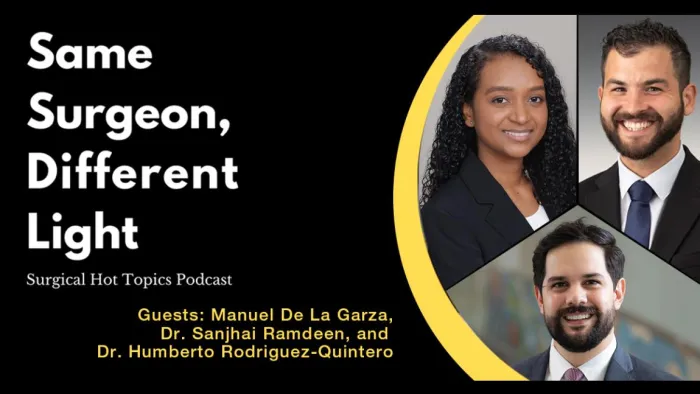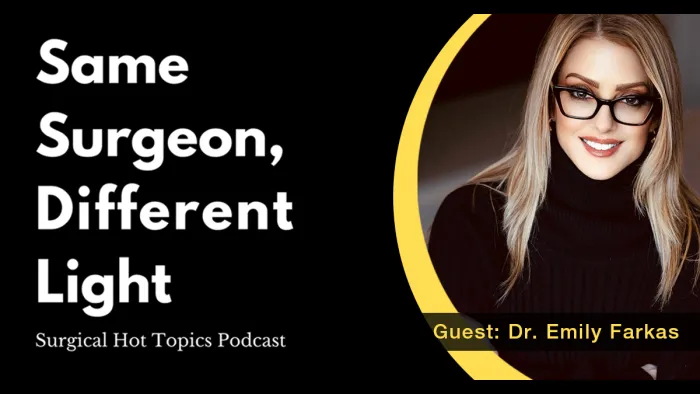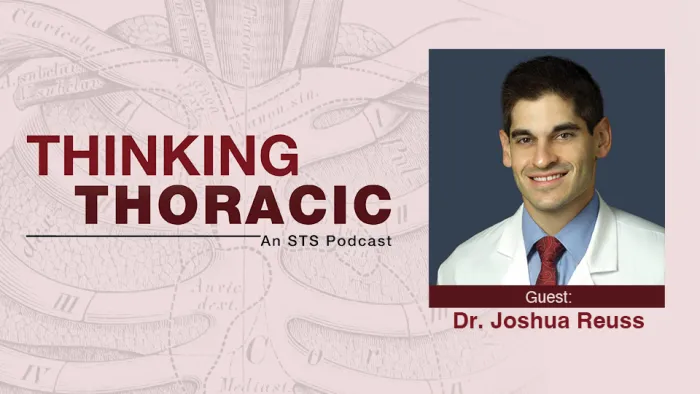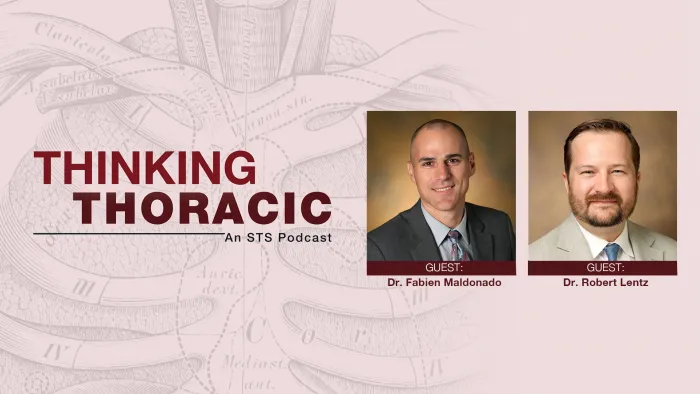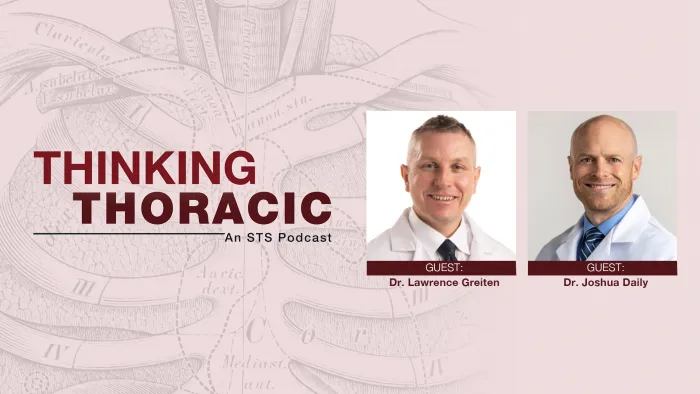STS podcasts feature conversations with member surgeons and expert influencers that shine a light on the most pressing issues and opportunities in CT surgery, leadership, and surgeon wellness. Discover new ideas. Hear different perspectives. Find connections.
Listen to The Resilient Surgeon; Same Surgeon, Different Light; and Thinking Thoracic here or subscribe to STS podcast channels on your favorite podcast app.
The Resilient Surgeon
Hosted by Dr. Michael Maddaus, the Resilient Surgeon offers captivating and sincere conversations with some of the most influential and insightful experts in personal wellness and organizational leadership. Find practical strategies and scientifically proven practices to help you perform at your very best in and out of the OR. Listen here or subscribe to The Resilient Surgeon podcast channel on Apple, Spotify, iHeart, or other popular listening platforms.
Same Surgeon, Different Light
Same Surgeon, Different Light demystifies CT surgery by revealing the men and women behind their surgical masks. New hosts Dr. Cherie Erkmen and Dr. Sara Pereira uncover the backstories of cardiothoracic surgeons from different backgrounds and career stages. It's a fascinating look at the powerful and personal stories about their career journeys. Listen here or subscribe to the Same Surgeon, Different Light podcast channel on Apple, Spotify, iHeart, or other popular platforms.
Thinking Thoracic
Hosted by Drs. Jeff Yang, Erin Gillaspie, Hari Keshava, and Jane Yanagawa, Thinking Thoracic offers candid conversations about the latest advancements and challenges in the field. Dive into critical topics, such as lung cancer screening advocacy, cutting-edge clinical trials, and debunking common medical myths. Listen here or subscribe to the Thinking Thoracic podcast channel on Apple, Spotify, iHeart, or other popular listening platforms.
This podcast is generously supported by AstraZeneca.
Caption
Image

